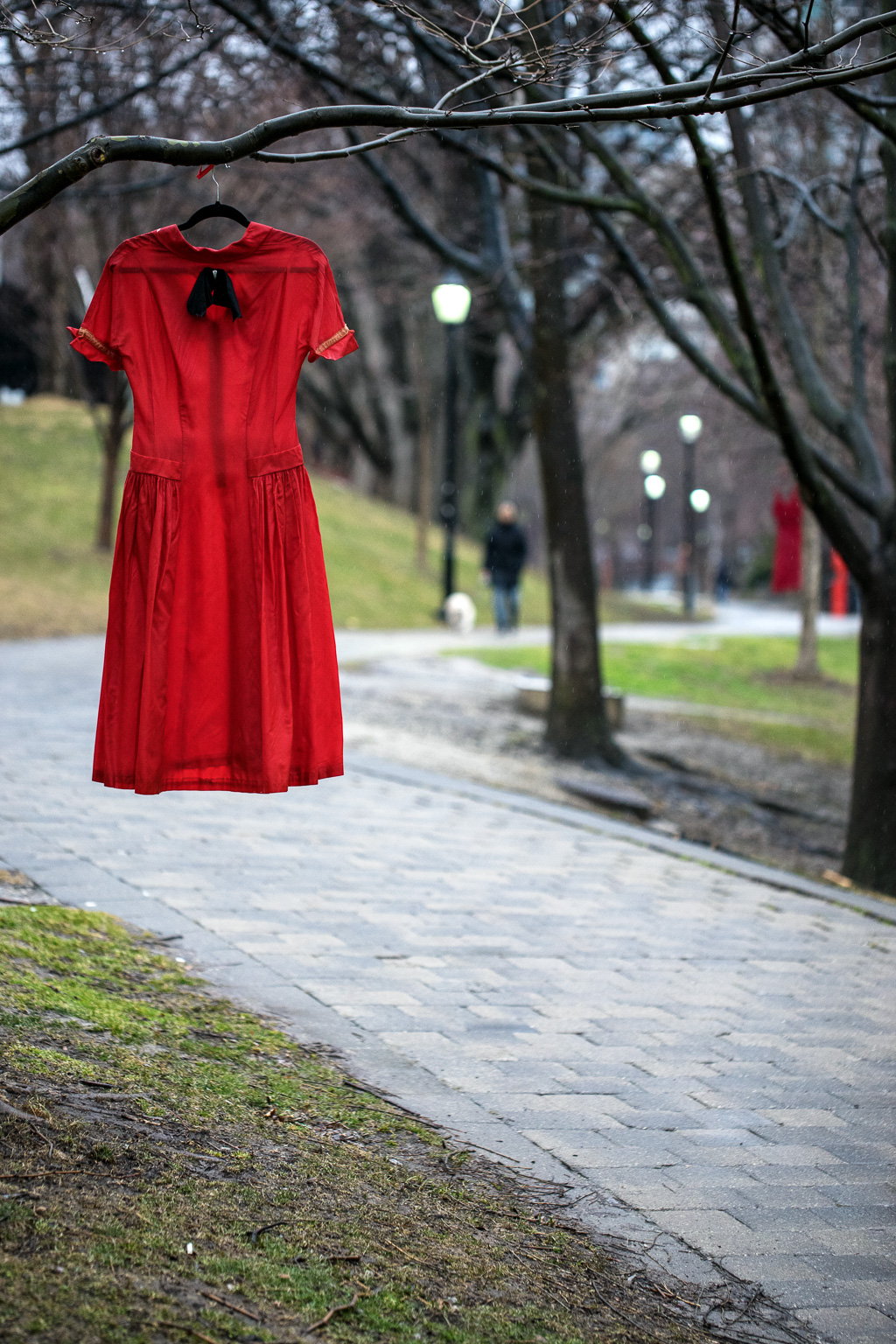
Five years ago, in 2017, the University of Toronto’s Women & Gender Studies program invited artist, Jaime Black, to bring her REDress installation to the U. of T. campus. She hung red dresses from trees along the path of Philosopher’s Walk (Taddle Creek) where they were exposed to the early spring weather. The purpose of the installation was to draw attention the staggering loss of life associated with missing and murdered Indigenous woman.
As with everything in the city, the installation had its moment in the sun, and then it was gone. So much clamours for our notice, and we have such short attention spans, and our memories fade as fast as we can turn the channel. Then, of course, there’s Covid. Covid has sucked our attention from everything else until we’re sick of it. All we want is to be left alone.
Like the bodies themselves, the dresses vanish. As do their memories. Historically, Indigenous women have sat at the bottom of every social hierarchy, and that has invited others—mostly notably white men—to treat them as disposable. I can’t say that a shift to a late capitalist consumerist society offers us the finest model to REDress this wrong. When we have grown used to talking about a gig economy where people are no longer reduced even to units of labour, but to subslivers of time/labour, and when the only line advertising blurs is the line between exploitation and indoctrination, and when we smile at quaint notions of distributive justice and say they properly belong in a museum, it may not be so unreasonable to suggest that any progress for MMIW isn’t going to happen without dismantling the existing system.
I get tired of the same conversations that goes nowhere. And I get tired of the same political promises that produce no concrete action. I can’t begin to imagine what it must be like for those who have lost someone they love.